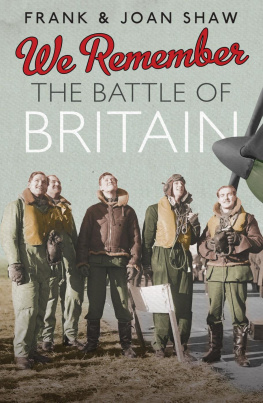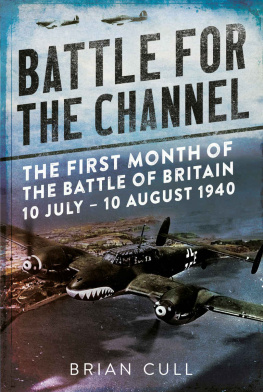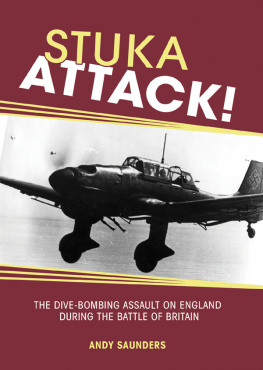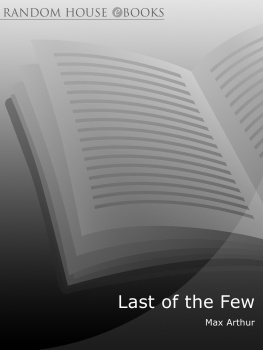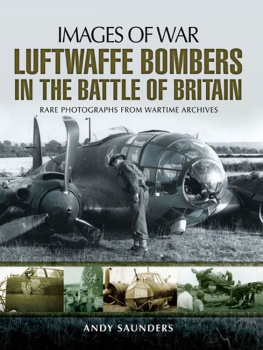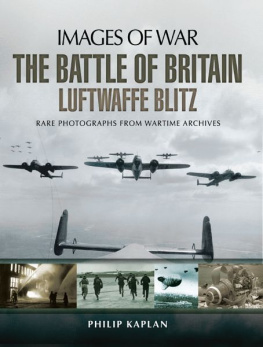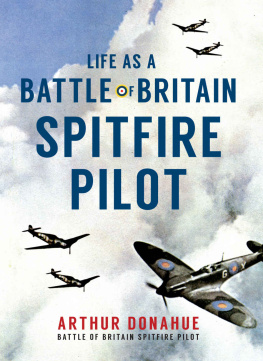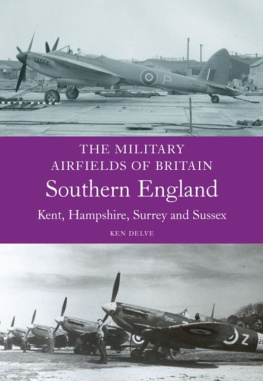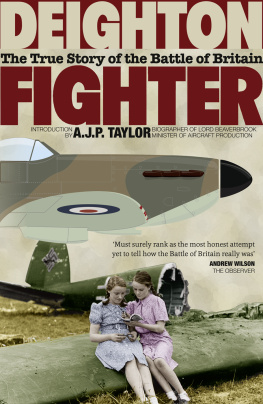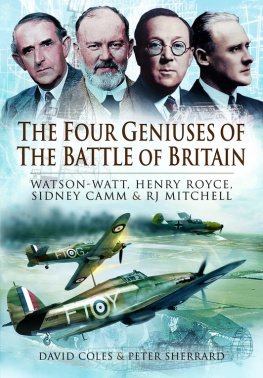Contents
About the Book
After the surrender of France to Germany Churchill announced that the Battle of Britain is about to begin and on 10 July 1940 the Luftwaffe began bombing ships in the English Channel in readiness for a full air assault on the south of England.
By August, German aircraft were attacking coastal airfields, moving inland to attack radar bases, RAF airfields and aircraft factories, until finally turning their attention to London and other major cities. But Hitler had underestimated the determination of the RAF and by mid-September the Luftwaffe sustained such great losses that Britain had won the battle for our skies and the German invasion was called off.
We Remember the Battle of Britain is filled with stories from servicemen who fought in the air and on the ground, and from the men and women who witnessed the extraordinary dogfights taking place above them. From the excitement of collecting souvenirs from wreckages as children, to hearing the unmistakable screams of planes diving out of the sky, we learn how The Few fought off the threat of invasion and won the Battle of Britain.
About the Authors
Frank and Joan Shaw live in Hinckley in Leicestershire. They have four children and nine grandchildren. They were born and raised in Deal, Kent where they also spent the war. The idea for the We Remember series came when their granddaughter asked them about the Second World War for a school project. Frank and Joan decided more memories needed to be committed to paper, and they wrote to 700 local newspapers throughout the country asking just that. They were flooded with letters, which they then self-published as five hardback books, raising over 100,000 for the Royal British Legion. Ebury Press are delighted to be republishing them over 20 years later, with all royalties going to the Royal British Legion.
The Land That We Love
The Heinkels are over, the sirens wail loud
Take heed of the warning, dont stand in a crowd
Be calm in your shelter and quieten your fear
The ground barrage lightens the fighters are here!
For Britain and Freedom, straight into the fray
The Knights of King Arthur in modern array
Eight guns sing a rhythm, three short bursts one long
How mournful the music A Nazis death song.
The battle is over, turn your thoughts from above
And look to the future, of the land that we love
When our sons have conquered, then whats the reward?
The same Special Areas and the old Yellow Card?
Make a land fit for heroes for those we love dear
And then in our conscience we can sound the all clear.
THIS POEM WAS written by my father, also called Frank Shaw, in 1940, when he was aged 31. Sadly, my father passed away in 1997, aged 88, still living at the same house where he had written the poem 57 years before.
The poem was written one afternoon when he had returned from working at Betteshanger Colliery in Deal, Kent, where he was a miner. He recalls how he had seen an air battle directly overhead involving German bombers and fighters and British Hurricanes and Spitfires. He then went straight indoors and sat down at the table on which was still all the cutlery and crockery from his early-afternoon dinner following his morning shift at the colliery. The poem expresses not only his feelings about the battle he had just witnessed, but also his feelings of the wider battle that would follow the end of the war and the need to ensure that all the miseries of social deprivation of the 1930s did not return. The Special Areas were areas of high unemployment and social misery, and the old Yellow Card refers to unemployment cards.
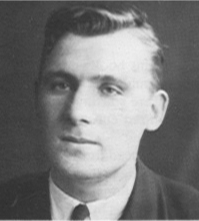
But the poem is especially interesting for another reason. It was written in September, 1940, and at a time when Britain stood absolutely alone. Everyone was awaiting invasion and the world saw nothing for the country but total defeat. But the poem shows that, even then, ordinary men and women had a total confidence of victory and never once doubted it would come. The words the battle is over, turn your thoughts from above/And look to the future, of the land that we love and make a land fit for heroes can have no other meaning.
I find it amazing that at that time these otherwise ordinary men and women of this country had that total confidence. The experts throughout the world gave us no hope. The ordinary men and women had no reason to feel that way. But they were right.
The Battle of Britain
by
Air Vice Marshal James Edgar Johnnie Johnson
CB, CBE, DSO and two bars, DFC and bar
When all the world is young, lad,
And all the trees are green;
And every goose a swan, lad,
And every lass a queen.
C HARLES K INGSLEY
WHEN YOU FLEW high over Dover during that fine early summer of 1940 you saw the French coast and the Pas de Calais until it was lost in the blue haze, and here lay the crack fighter squadrons of the Luftwaffe, ably led by young and experienced leaders, including Adolf Galland, Werner Molders and Helmut Wieck.
You could not see the scores of airfields which dotted the land between Hamburg and Bordeaux and which housed two air fleets, Luftflotte 2 and Luftflotte 3, while Luftflotte 5 rested on Danish and Norwegian bases. This powerful air armada, with some 2,800 combat aeroplanes, was thus dispersed along a wide front so that air attacks against Britain could be mounted from different directions. The airfields were well stocked for the coming assault, and the aircrews, flushed with victory after their successful blitzkrieg campaign in the Low Countries and France waited for Reichsmarschall Goering to give the signal.
Operation Sealion, the strategic plan for the invasion of Britain followed the usual pattern of blitzkrieg, except that the air fighting over Dunkirk had made Goering realize that the RAF would prove a harder nut to crack than some air forces who, without radar, had been surprised and largely written off on the ground because they had little or no warning of the approach of enemy fighters. Once again the Luftwaffe would be used as a big stick to bludgeon all opposition, and the panzers would cross the Channel, as they had crossed the Meuse, with strong packs of dive-bombers taking the place of the artillery, and gain footholds on suitable beaches between the Isle of Wight and Dover.
The Luftwaffe would destroy the fighter defences in the south and then extend their offensive further inland, so that the bomber fleets could roam unopposed over England, taking out the old cities, reducing civilian morale, and paving the way for invasion against a British Army short of the weapons lost at Dunkirk. The enemy planners estimated that four days of intensive operations would subdue our southern air defences, and a further four weeks would be required to write off the remainder of the RAF. Adlertag (Eagle Day), scheduled for early August, would mark the beginning of the attack against 11 Group and, if all went well, the panzers would cross the Channel four or five weeks later.
The Luftwaffe possessed some excellent aeroplanes, and the Messerschmitt 109E had a higher ceiling and better guns than either the Spitfire or the Hurricane. The enemy fighter carried either four machine guns or two machine guns and two cannon; the latter compared very favourably with our eight Browning machine guns. The 109F, which was soon to make its appearance over England, had one cannon which was centrally mounted and fired through the hub of the airscrew, and later versions of this splendid fighter had three cannon.
Next page
